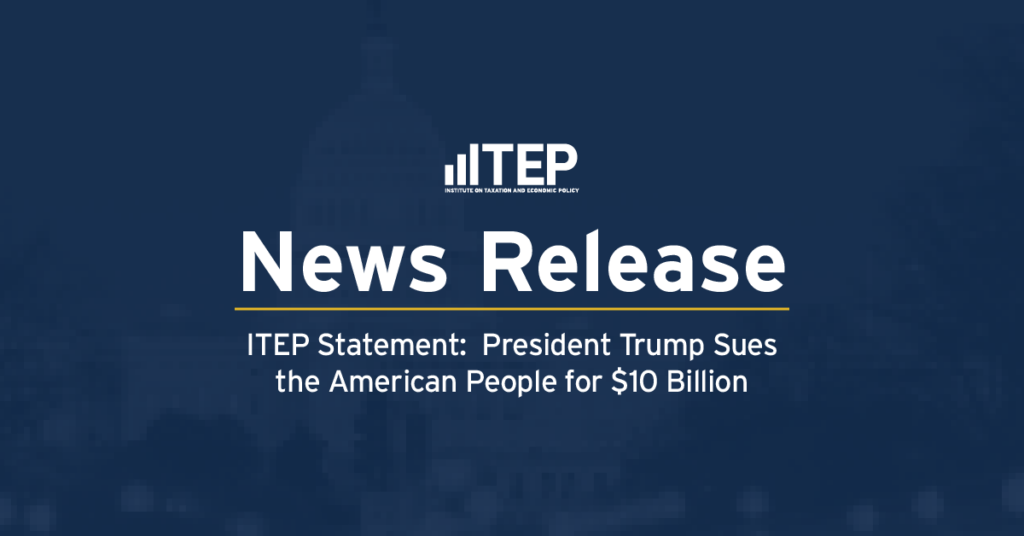Following is a statement by Alan Essig, executive director of the Institute on Taxation and Economic Policy, regarding the Senate tax plan released today. While it will take a complete analysis to determine how each income group is affected by the Senate’s proposal, an initial overview of the plan leads ITEP’s analysts to conclude that the biggest benefits are still reserved for corporations and the rich.
“Senate Republicans have provided limited details so far of their tax plan, but the available information is telling. Both houses of Congress are working toward a common goal of slashing taxes for corporations and the highest-earning households while attempting to make these cuts more palatable to the rest of us by providing token gestures for the middle-class.
“The House bill, for example, eliminates the estate tax over time. But the Senate bill would continue to apply the estate tax to inheritances valued at more than $22 million. Already the estate tax doesn’t kick in until holdings are worth more than $11 million for married couples. Increasing that exemption to $22 million is still a tax benefit for the richest 0.2 percent of households that does nothing to help working families. This is a poor attempt at pretending the tax cuts aren’t for the rich.
“As with the House bill, the Senate plan would slash the corporate tax rate even though many major American companies such as AT&T, Boeing and GE already pay effective corporate tax rates in the single digits, and in some profitable years these companies have paid zero. Real tax reform would address the flaws in our system that allow profitable corporations to get away with paying effective tax rates that are lower than rates paid by many middle class families.
“And lawmakers continue the pretense of helping small businesses with a break for “pass-through” income. Since “pass-through” businesses include hedge funds, law firms, and enormous companies such as Bechtel, this break, again is a tax cut that will primarily benefit the rich rather than small businesses.
“Relative to the House bill, the Senate proposal offers an even worse deal for state and local governments, and for everyone who uses the education systems, transportation networks, and other services they provide. The Senate would go further than the House in ending the deductibility of state and local taxes entirely, making it more costly for states and localities to fund public services. Making matters worse, the Senate plan’s break for pass-through businesses is a deduction, which lowers the income that taxpayers report on their tax returns. Since many states’ tax rules use the income reported on federal tax returns, this means that state and local governments will lose revenue and rely even more on taxes they collect from families with the lowest incomes.
“Lawmakers rightly have faced criticism that their plan to overhaul our nation’s tax code would boost the after-tax income of the wealthy while digging the nation deeper into debt to pay for it. The House’s answer to the negative public response included token changes, such as maintaining a top marginal rate of 39.6 percent. But multiple analyses showed that even with these changes, the wealthy would receive the greatest share of the benefit and that share would grow over time. Now, the Senate is attempting the same sleight of hand by including a few token gestures such as not entirely phasing out the estate tax.
“Instead of pretending that their marginal changes to this evolving plan support their rhetoric about tax cuts for working people, lawmakers should instead take a step back and focus on policies that would truly help the middle class.”



